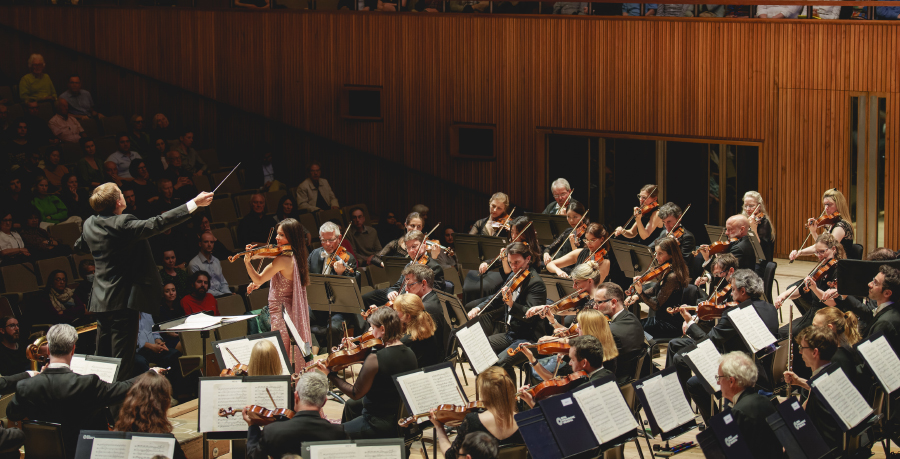The Royal Philharmonic Orchestra (RPO) today publishes its annual report on engagement with orchestral music, as well as a look at the future of orchestral music and how technology is shaping this. Embracing the future with confidence: The evolution of the orchestral audience in the digital age draws on newly commissioned research offering insights into audience demographics, technological advancements, and the evolving tastes of audiences. It also pulls together some of the significant trends and shifts in the orchestral music landscape from 2018 to 2023 that have formed the foundation for the coming years.
Findings include:
Growth in orchestral concert interest and genre diversity
- Five-year peak: The number of people who would like to experience an orchestral concert rose from 79% in 2018 to 84% in 2023.
- Surge in discovery: When it comes to the new music genres that people want to discover, orchestral/classical music had the biggest net increase in popularity (up 10% to 25% in the last year), with year-on-year gains also for opera (up 5%), and music from the musicals (up 4%).
- Different orchestral formats: Six orchestral concert formats have grown in popularity since 2018, including music from musicals, film soundtracks, pop/classical crossovers, TV soundtracks, family-friendly concerts, and video game soundtracks concerts.
Core fans are now a minority audience
- Newcomers outnumber the established audience with 54% being new enthusiasts versus 31% long-time classical music fans
- The current orchestral audience consists of five distinct segments: life-long advocates, vocational students, new discoverers, casual fans, and first-time joiners.
- Most eclectic are music students, 30% of whom prefer modern composers, also stress the importance of connecting orchestral music with popular and contemporary culture
Audience’s embrace of technology remains cautious
- Transformation in musical engagement: Two-thirds of adults (64%) said that music streaming sites have fundamentally changed their relationship with music.
- Hostility to algorithms: only 6% of under-25s and 1% of orchestral fans trust algorithms for their music choices in any situation.
- New media adoption: Around one in 10 young people are already engaging with cutting-edge forms of media as a part of their musical engagement, such as augmented reality, and in-game virtual reality music experiences.
- Lingering effects of lockdown: 16% of people continue to stream live sets online, and online concerts (11%) and artist Q&As (9%) continue to be popular.
- Future of concerts: 60% of orchestral enthusiasts can envisage a completely different concert experience on stage within the next 10 years.
James Williams, Managing Director of the Royal Philharmonic Orchestra commented: ‘Our new report clearly indicates that the landscape of orchestral music is not merely growing; it is transforming and being shaped by technological innovation. The trend we have observed with our tracking data continues to build, with more people seeking out orchestral experiences and with a greater openness for diverse and changing genres. The distinction between audience segments – such as 'core', 'new', or 'niche' – is increasingly becoming blurred, as overlaps between them become more common.
The advent of technology brings enormous benefits to audiences and has the potential to fundamentally alter how they engage with the orchestral world. However, there also appears to be caution in how people embrace it, acknowledging the risks alongside the opportunities. Navigating this path is vital but not easy. There is a need to evolve tradition with technology, but at its core, this evolution must be guided by the music and its power to connect with the human spirit. Our overriding objective is to make orchestral music as widely accessible as possible, offering multiple entry points and understanding the diverse pathways that enable people to embark on a rewarding musical discovery journey.’
Read previous RPO Insights Reports
Media enquiries:
For more information or to arrange interviews contact:
Guy Bellamy / Jim Follett - elephant communications
Tel: 07766 775216 or 07908 551571

